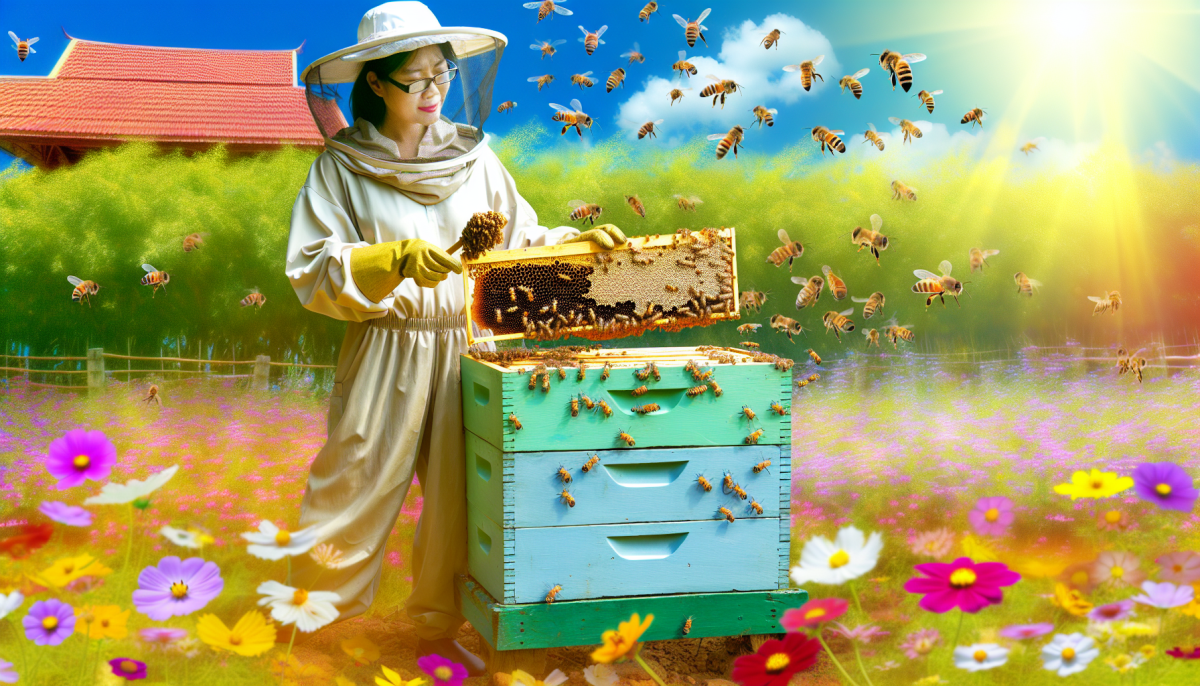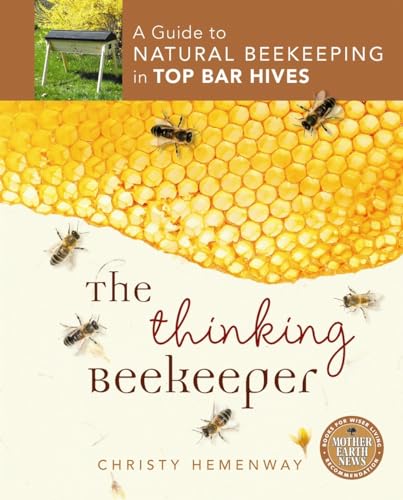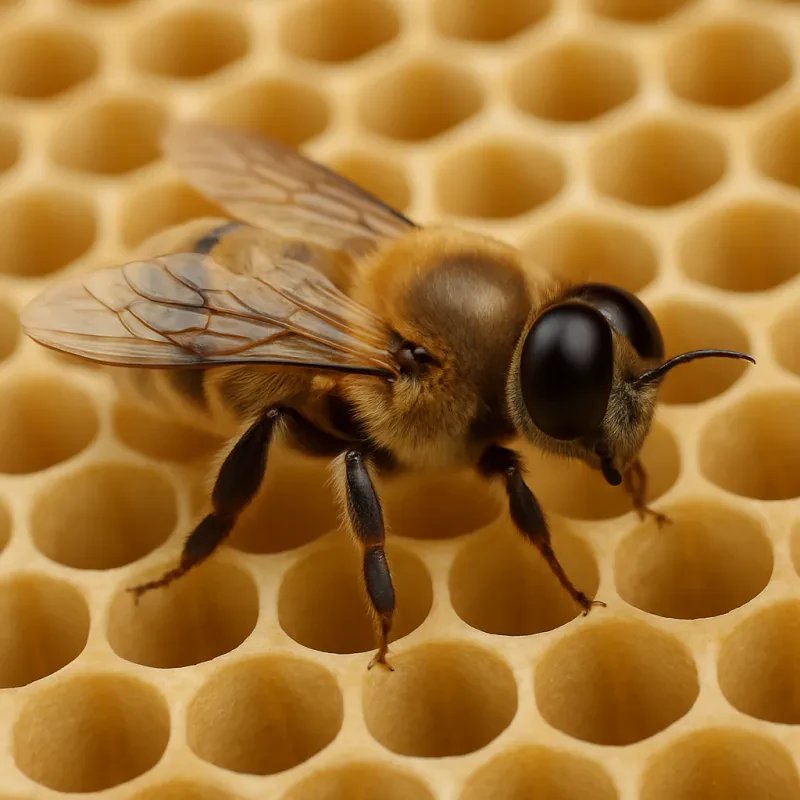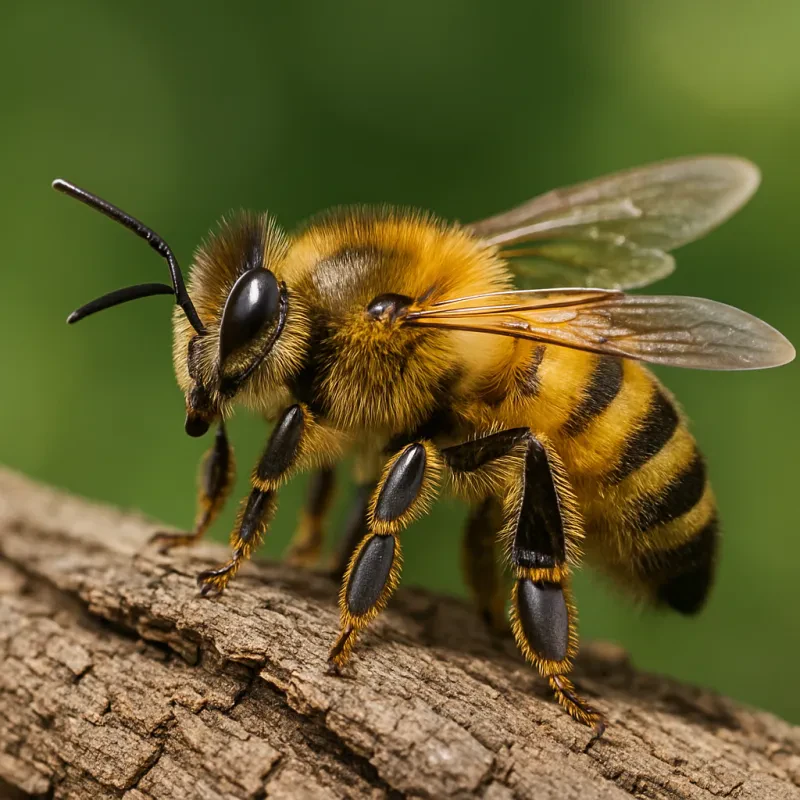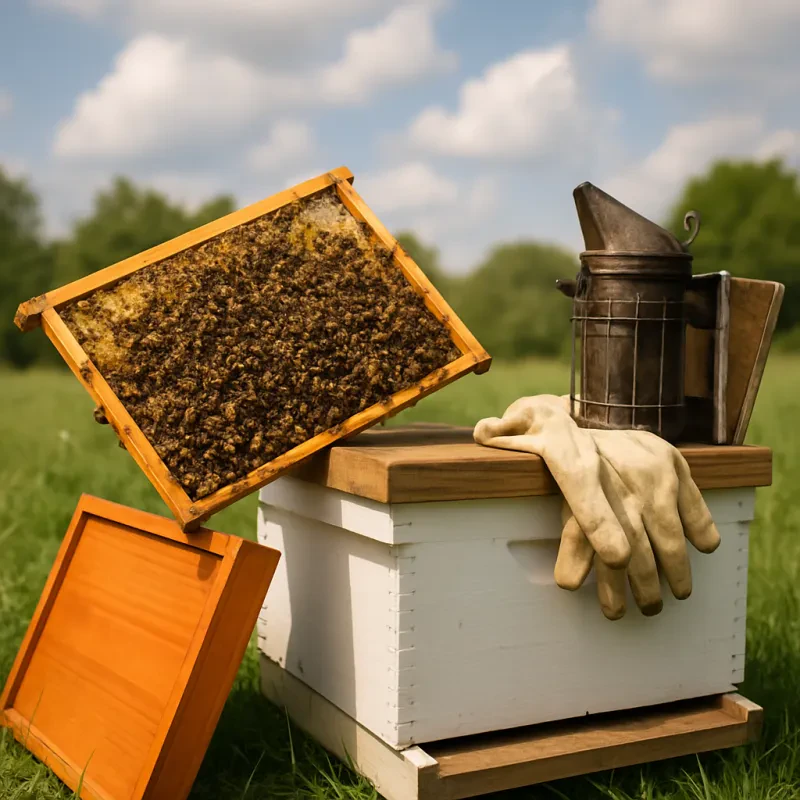$11.84
4.66 out of 5 starsGuide to Natural Beekeeping in Top Bar Hives
A comprehensive resource for beginner and experienced beekeepers looking to adopt sustainable beekeeping practices in top bar hives
Product information
Product Review Score
Product links
Beekeeping, an age-old practice that dates back thousands of years, has seen a resurgence in both rural and urban settings worldwide. This resurgence is not without reason; the benefits of beekeeping extend far beyond the sweet produce of honey. From bolstering local ecosystems to providing economic opportunities, the practice of beekeeping is a multifaceted one, offering environmental, economic, and social benefits. This article delves into the myriad advantages of beekeeping, underscoring its significance in today’s world.
Environmental Benefits of Beekeeping
Pollination and Biodiversity
One of the most critical roles bees play in the environment is pollination. Bees are responsible for the pollination of a large variety of plants, including many crops essential for human consumption. By transferring pollen from one flower to another, they not only facilitate plant reproduction but also enhance genetic diversity within plant populations. This process is crucial for the production of fruits, vegetables, and nuts, contributing significantly to the world’s food supply. Moreover, the presence of bees in ecosystems supports the maintenance and growth of biodiversity, ensuring the health and sustainability of various habitats.
Habitat Creation and Conservation
Beekeeping encourages the conservation of green spaces and natural habitats. In urban environments, where green spaces are limited, beekeeping initiatives can promote the establishment of urban gardens and the maintenance of parks and wildflowers. These areas provide essential habitats for bees and other wildlife, contributing to the conservation of urban biodiversity and the creation of green corridors that support various species.
Economic Benefits Raising Honeybees
Honey Production and By-products
The most apparent economic benefit of beekeeping is honey production. Honey is a valuable commodity, not only for its culinary uses but also for its medicinal properties. The global honey market is substantial, and beekeepers can tap into this market by selling honey and other bee-related products such as beeswax, royal jelly, and propolis. These by-products have a variety of uses in the cosmetic, pharmaceutical, and food industries, offering additional revenue streams for beekeepers.
Employment and Rural Development
Beekeeping can be a source of employment and income for individuals and communities, particularly in rural areas where economic opportunities may be limited. It requires relatively low startup costs compared to other agricultural practices and can be a sustainable source of income for families. Furthermore, beekeeping can play a role in rural development by encouraging the preservation of traditional knowledge and practices related to beekeeping and local flora.
$61.99
4.61 out of 5 starsBlisstime Beekeeping Starter Kit - 26 Pieces
Get all the essentials you need with this complete 26-piece Beekeeping Starter Kit by Blisstime
Product information
Product Review Score
Product links
Social Benefits of Raising Beekeeping
Education and Awareness
Beekeeping serves as an educational tool, raising awareness about the importance of bees to our ecosystems and food security. Through beekeeping, people of all ages can learn about the complex lives of bees, the challenges they face, and the importance of conservation efforts. Educational programs in schools, community centers, and beekeeping associations can foster a greater understanding of environmental issues and the critical role of pollinators.
Community Building and Well-being
Beekeeping can strengthen community bonds by bringing people together through shared interests and collective efforts in beekeeping activities. Community gardens and beekeeping clubs provide spaces for individuals to connect, share knowledge, and support one another. Moreover, the practice of beekeeping has been reported to have therapeutic effects, reducing stress and improving mental well-being. The hands-on nature of beekeeping, along with the time spent outdoors, contributes to physical health and a deeper connection with nature.
Challenges and Considerations of Beekeeping Benefits
While the benefits of beekeeping are numerous, there are challenges that must be addressed to ensure its sustainability and positive impact. These include the need for proper education and training in beekeeping practices, the protection of bees from pesticides and diseases, and the conservation of their natural habitats. Ensuring sustainable practices involves a commitment to ecological balance, avoiding overharvesting of honey and other products, and supporting organic and environmentally friendly farming practices.
Beekeeping Benefits Help Sustain Honeybee Populations
Beekeeping is more than just a hobby or a means to produce honey; it is a practice with profound implications for our environment, economy, and society. Its benefits are far-reaching, from enhancing biodiversity and supporting food production to providing economic opportunities and fostering community well-being. As the world faces increasing environmental challenges, the role of bees and beekeepers becomes ever more critical. By supporting beekeeping, we not only reap the tangible benefits it offers but also contribute to the health and sustainability of our planet. The practice of beekeeping, with its rich history and promising future, stands as a testament to the intricate relationship between humans and the natural world, reminding us of the importance of conservation and the stewardship of our shared environment.
$13.79
4.6 out of 5 starsBackyard Beekeeper's Guide: 4th Edition for Beekeeping
The ultimate resource for aspiring beekeepers, designed specifically for those who want to start their own backyard beekeeping journey - now in its 4th edition
Product information
Product Review Score
Product links
